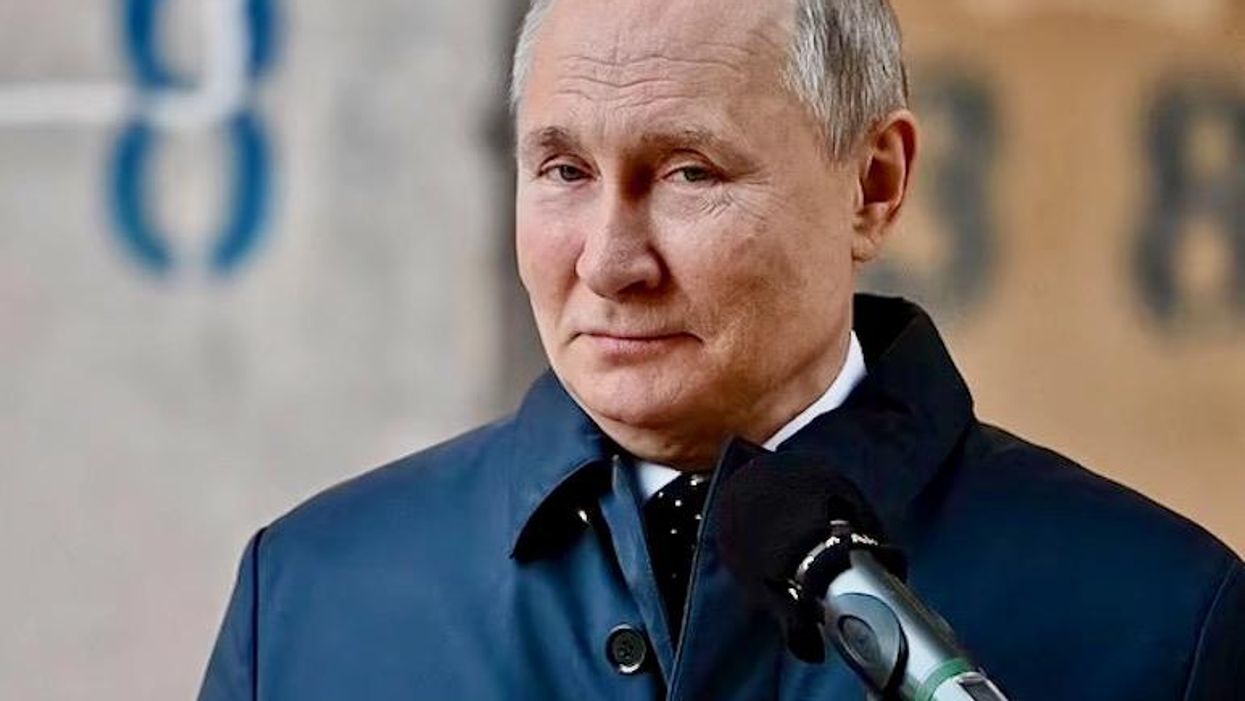The Russian invasion of Ukraine took a turn on Feb. 27 when President Vladimir Putin put Russia’s nuclear forces on alert. International and military experts were cautious but dismissive that he would go that far.
“I don’t think that the Russian leadership and Putin are irrational actors,” John Erath, senior policy director for the Center for Arms Control and Non-Proliferation, told Newsweek on March 12. “The use of a nuclear weapon would lead to the possibility of a response that would be disastrous for all.”
“In my opinion, he is rational. Given that he is rational, I strongly believe he will not intentionally use nuclear weapons against the West. I say intentionally because indiscriminate shelling near a nuclear power plant can cause an unintentional nuclear disaster in Ukraine,” said former Russian Minister of Foreign Affairs Andrei Kozyrev, who served from 1990 to 1996. That was on March 7.
Just under two months later, Russia pushed out a video showing Britain and ireland being blown up by a nuclear bomb.
IN OTHER NEWS: Trump-loving candidate blames election loss on ‘coup’ from ‘RINO establishment’
It prompted Harvard international affairs Professor Stephen Walt to say that he still doesn’t believe that Putin will break out the nukes, “but I am more worried about it than I was a couple of months ago.”
Writing for ForeignPolicy.com he explained that when he was speaking about the war back in February that he found the idea difficult to believe. “To its credit, the Biden administration has been somewhat mindful of the risk of escalation,” he wrote on Thursday.
The initial thought was that as long as the United States keeps troops from going into a ground war and shooting at Russian soldiers, Putin wouldn’t be triggered into a fury. Now it seems he might be crazier than was anticipated.
“To be clear: I have no idea if anyone in the Kremlin is thinking seriously along those lines, and this point is not an argument for sending U.S. troops to Ukraine as a deterrent shield,” wrote Walt. “My point is that keeping American personnel out of the fight does not eliminate all incentives to escalate, and it might make nuclear use appear less risky if those other incentives began to loom large in Moscow’s calculations.”
READ MORE: Ted Cruz and Sheldon Whitehouse clash at hearing: ‘If you’re going to criticize my brief – read it!’
There’s also a concern because of Putin’s tendency to make good on his threats. There was his 2008 demand Ukraine and Georgia never be part of NATO. An attack broke out and it’s kept Georgia away ever since. He went on to threaten Ukraine in 2014 and ultimately invaded and took over Crimea. In 2021, he warned Ukraine they better not take weapons from the west, and when they did he staged his troops on the border.
The U.S. cowboy bravado is easy. “Just blow him up” is emotionally appealing as the horrifying images and videos roll in from Ukraine.
“Many would like to punish Putin for the suffering he’s inflicted on Ukraine,” Walt explained. “Unfortunately, trying to inflict a decisive defeat on Russia creates precisely the circumstances that would encourage a rational leader to contemplate other options, such as a demonstration strike with a small nuclear weapon. The purpose of such an action would be what the late theorist Thomas Schelling called a ‘competition in risk-taking’: one side takes an obviously dangerous action in order to demonstrate how much it cares about the issue at hand, and to persuade its opponent(s) to back off.”
There’s an ongoing concern that if Putin thinks he’s losing, his willingness to go to the extreme deepens. After all, if he’s going to be removed from power or Russia is about to collapse, why wouldn’t a man with nothing left to lose embrace mutually assured destruction?
RELATED: Putin apologized for Russia Hitler claims
“It would be a gamble for sure, but he’s gambled before,” wrote Walt. “And he probably cares more about avoiding those outcomes than the opposing coalition cares about inflicting them on him. He won’t order a large-scale nuclear attack, because that would be suicidal, but a demonstration strike against a non-nuclear adversary, though not without serious risks, is another matter.”
Read the full column at ForeignPolicy.com.
Source: Russia probably won’t use nukes — but it looks more likely they might now: Harvard professor



